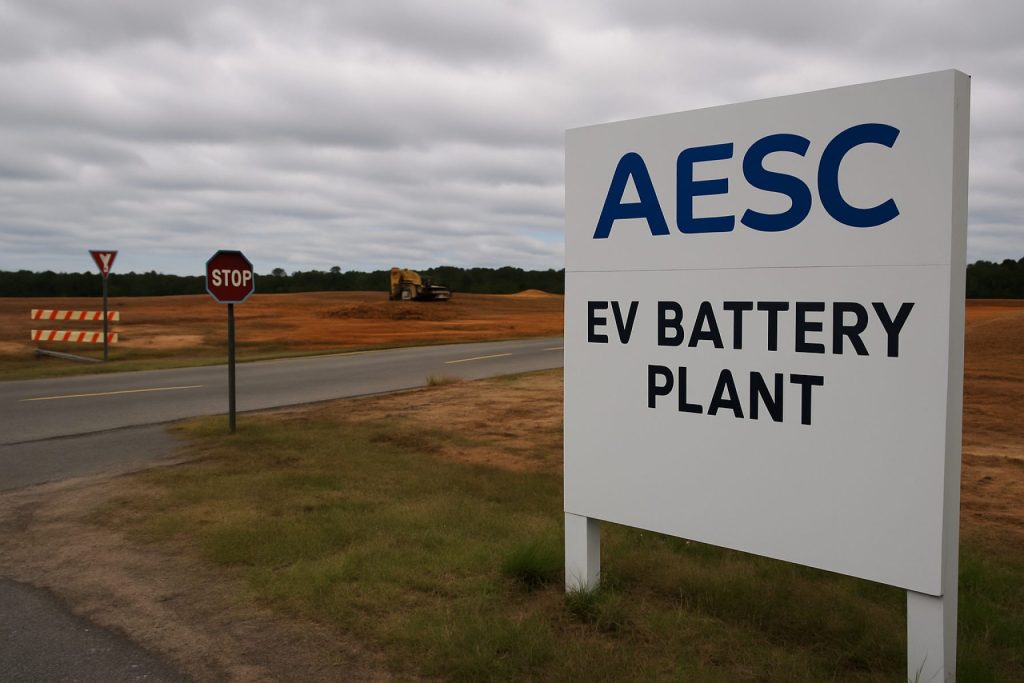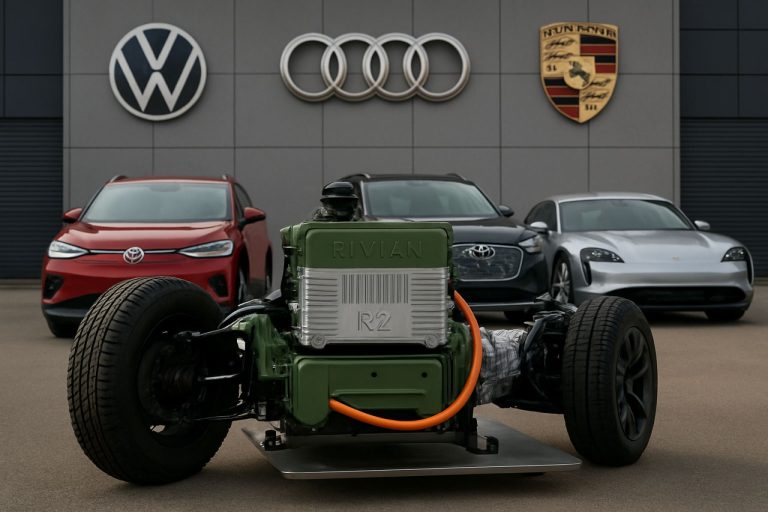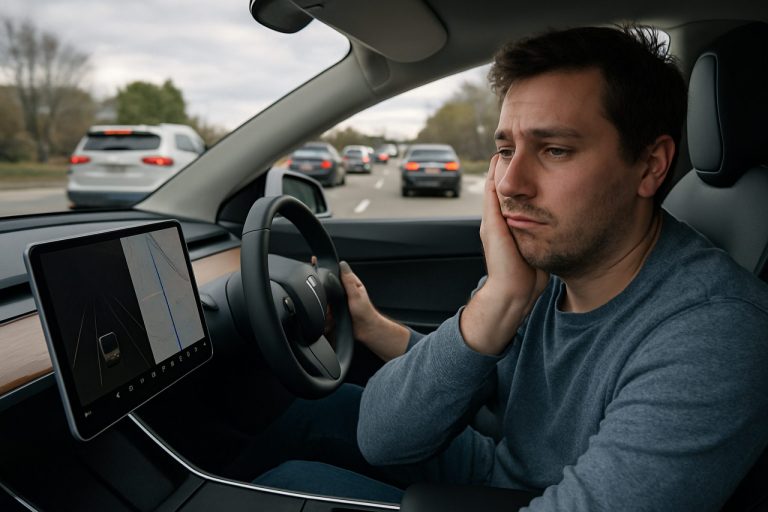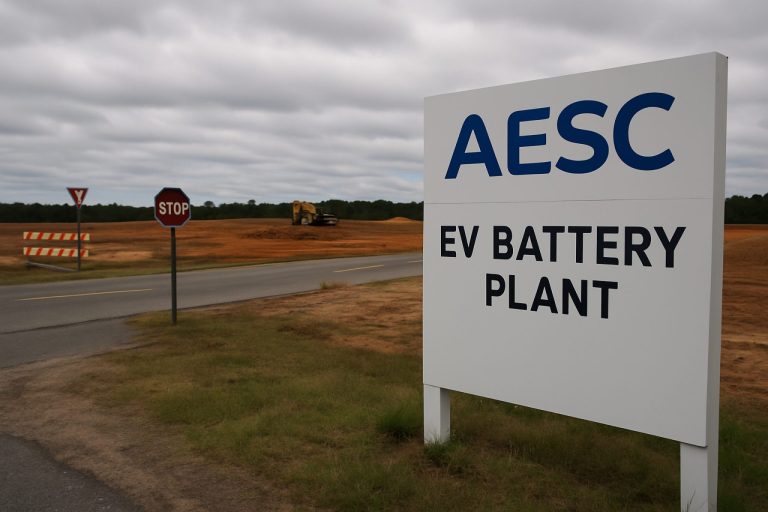
Shockwaves Hit South Carolina: AESC Halts $1.6B Battery Plant, Jeopardizing 1,600 Jobs as EV Market Faces Turbulence
AESC freezes billion-dollar battery plant in Florence County as U.S. policy shakeups threaten South Carolina’s booming EV future.
- $1.6B investment in the AESC Florence County facility now paused
- 1,600 jobs at risk if construction remains stalled
- $1B already invested by AESC before the halt
- $700M funneled into nearby BMW battery plant
South Carolina’s electric vehicle surge just hit a massive speed bump.
Japanese battery giant AESC pulled the plug—at least temporarily—on construction of its $1.6 billion EV battery factory in Florence County. The dramatic pause, confirmed Thursday, throws the future of thousands of South Carolina jobs and billions in planned development into limbo.
AESC officials cited “policy and market uncertainty” in Washington as the driving factors. The company pointed to escalating tariffs and the so-called “Big Beautiful Bill” in Congress, a budget proposal threatening to kill federal tax credits for electric vehicles.
State and local leaders received the news with shock and frustration. Legislators like Rep. Roger Kirby described the pause as “unimaginable” and warned it could reverberate through the entire region’s economy.
But what does this pause mean for South Carolina’s ambitious EV industry—and the communities counting on a brighter economic future?
Q: Why Did AESC Stop Building the Florence County Plant?
AESC, a global battery supplier for major automakers like BMW, blamed unpredictable U.S. policies for the abrupt halt. Ongoing debates over EV tax credits, new tariffs, and possible changes in federal incentives create a risky landscape for such massive investments.
CEO insiders say AESC still intends to finish the project. They hope to resume construction “once circumstances stabilize.” So far, the company has already poured over $1 billion into the facility.
Q: Who Is Affected by This Development Freeze?
The immediate impact is huge:
– Over 1,600 high-skill jobs are now on hold.
– Local suppliers and businesses expecting to serve the plant face uncertainty.
– Billions in regional housing, infrastructure, and development dollars could be lost or delayed.
The shockwaves don’t stop there. BMW, which invested $700 million in a nearby high-voltage battery facility, counts on AESC to power its next-generation EVs built in South Carolina. Meanwhile, Swedish automaker Volvo recently paused its own production due to supply chain constraints, adding to the unease.
How Will South Carolina Respond?
Governor Henry McMaster remains optimistic, urging patience and pledging state support for AESC. He’s in talks with federal officials, hoping for clarity on tariffs and incentives.
The state Commerce Department reaffirmed its “unequivocal” support for AESC and the broader EV ecosystem. Local leaders are lobbying Washington to maintain tax credits and incentives that keep investment flowing to American factories.
For more on policy debates impacting electric vehicles, visit The White House and Department of Energy.
What Does This Mean for the Future of EVs in the U.S.?
2025 was supposed to be a banner year for American-made electric vehicles. Companies like AESC and BMW bet big on U.S. soil, banking on stable policy and robust incentives. Now, market and political turmoil threaten to stall those dreams—as well as the thousands of jobs and billions in local investments riding on them.
Industry analysts predict more pauses or realignments as manufacturers watch Washington’s next moves. Global competition for battery plants is heating up, and policy uncertainty risks sending investments overseas.
Thinking of switching to an EV? Follow the latest at EPA for updates on incentives and regulatory changes.
How Can Communities Prepare and Respond?
Florence County and the Pee Dee region must brace for potential delays in job creation, housing expansion, and supplier contracts. Experts suggest:
– Diversifying their economic strategies
– Supporting existing EV companies
– Advocating for stable policies through local and national channels
Stay ahead of the EV revolution—follow the latest and demand action:
Action Checklist
- Stay informed on federal EV policies and incentives
- Support local businesses affected by the construction pause
- Contact your representatives to advocate for job-creating policies
- Monitor updates from AESC, BMW, and the South Carolina Commerce Department
- Get involved in regional development planning
The future of American electric vehicles hangs in the balance. Your voice—and your vote—could shape what happens next.



